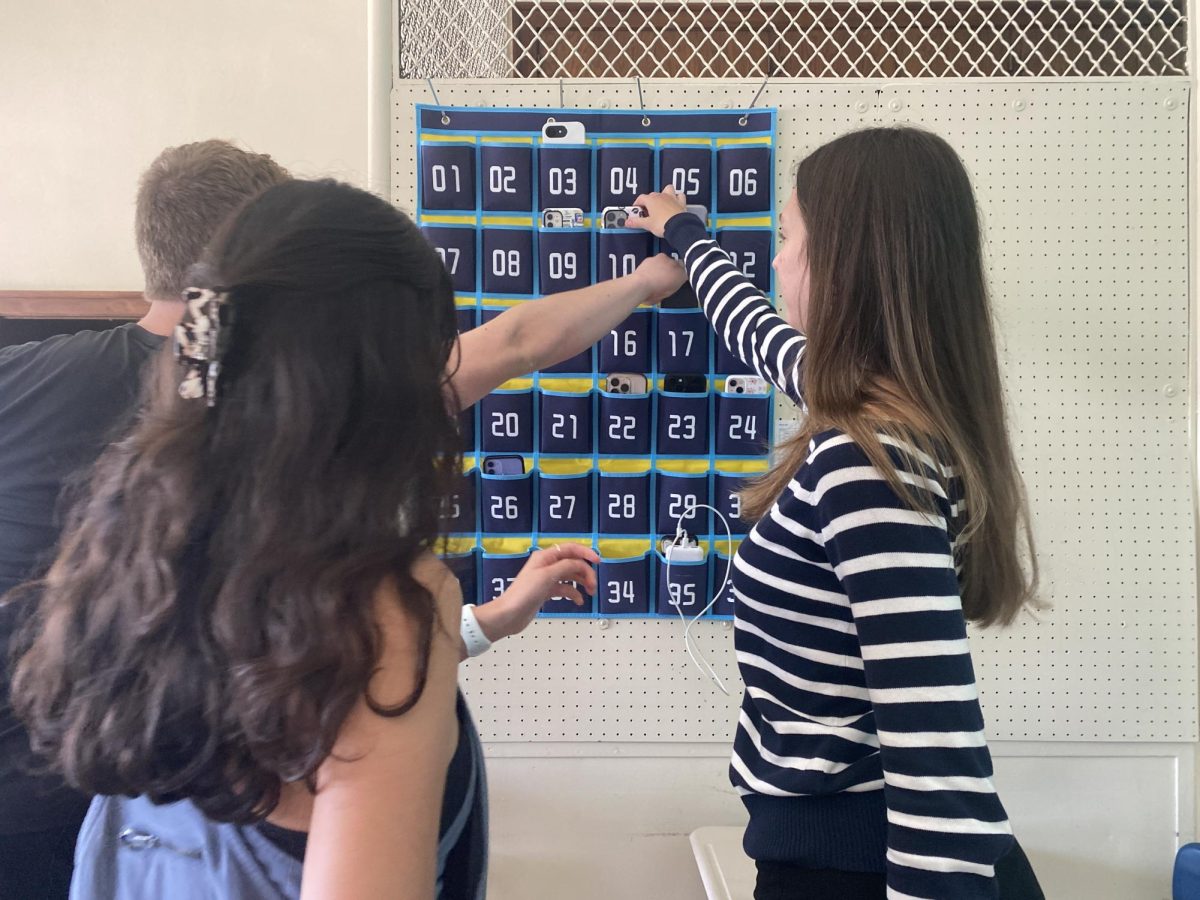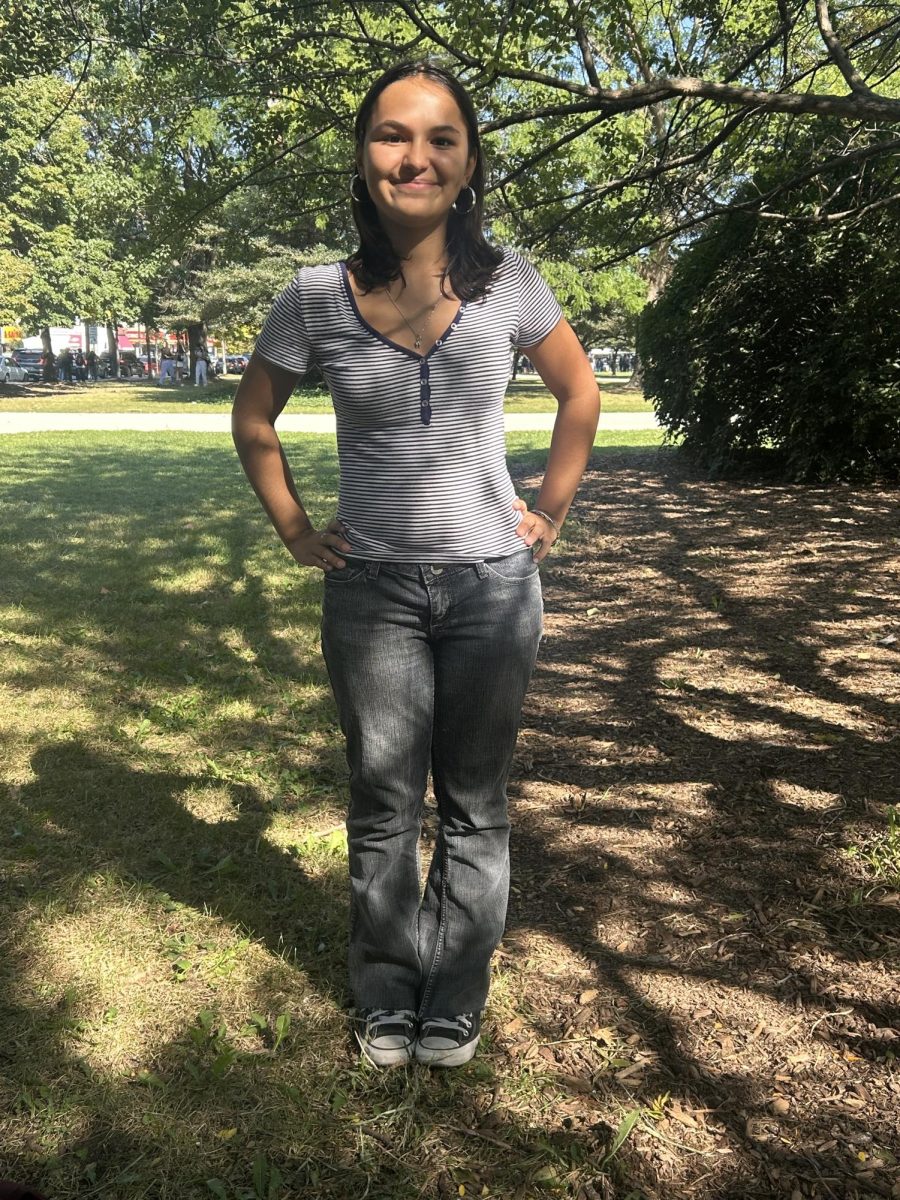
Heated debates, piping hot ad campaigns and talks about the presidential election were abuzz throughout the upperclassmen this past November. In their own classroom, these potential new voters were given an opportunity to simulate the election and party campaigning process.
Erin McMahon, an AP Government and Politics teacher, brought this assignment to students; a “mock election”. This consisted of essentially a mirror replica of America’s election that took place on Nov. 6, providing groups representing the media, party groups and candidates for each political party.
First, McMahon described how she sent out a survey which allowed students to pick their preference for parties and positions. “A ton of people wanted to be in the media. Fewer people wanted to be interest groups or party leaders,” McMahon said. Many students had to play different roles than their own personal beliefs to fulfill the requirements for the roles.
However, the survey still contributed to the character assignments people received. “I tried my best to give people the highest choice they chose in terms of parties.” McMahon said.
For students who aligned their party beliefs, like Elijah Jackson, who was the leader of the Democratic party in the seventh period, the mock election was all about the process rather than the outcome. Jackson particularly enjoyed working alongside his peers.
“The actual vast majority of the part that was helpful was just coordinating with other people,” Jackson said. This assignment was very collaborative, and included getting to know people Jackson noted he had never spoken to before in his class. However, the mock election would soon spark lively classroom competition-ferocious yet lighthearted. “You have to figure out what they want, what they’re interested in getting from you, what is going to get them to support you,” Jackson said.
Beyond the assignment, the mock election influenced students’ views on the political process that was occurring before their very eyes.
“I feel like it might have increased my cynicism towards the election a little bit, just because it made me reflect on how deeply concentrated a lot of power is amongst a few individuals,” Jackson said. He also discussed how the personalities of his classmates playing the characters impacted the voting. Sometimes the personalities would even benefit the campaign more than the candidate’s actual enactment of policies.
“I think my opponent was kind of able to just tell a bunch of jokes,” Jackson admitted.
Senior Jeffrey Kirkorian, who also participated as a Republican candidate, shared this sentiment with Jackson. He himself created ads that, while at a glance a funny quip, were effective in spreading misinformation about his opponent, leading to his group’s victory.
Kirkorian watched these ideas play out real time in the November election. “The biggest takeaway I had was to not trust what the media says all the time,” Kirkorian said. Proving this point, the media teams wrote demeaning articles and created intentionally misleading ads about their opponents, while bolstering their own parties with glowing support.
Senior Sanne Nordlund was a Republican candidate. For her, this role provided unique challenges.
“I was running from a standpoint of someone that my views don’t align with,” Nordlund explained. However, the extensive research she had to do to fully embody her role led her to enjoy the process more than one would expect.
“I think it’s good to understand these situations, and especially opposing views to their fullest,” Nordlund said. “Our final candidates were me, the extreme conservative guy, and then someone else who was the extremely liberal person. And I thought that that was really interesting, and honestly, pretty representative of what’s going on right now.”
Nordlund ended up losing in her election, but she thoroughly enjoyed the assignment, despite her challenging position.
“Honestly, I love the role so much,” Nordlund said.
McMahon has been using this assignment for years, but this semester it hit especially hard.
“I wanted you guys, when you’re watching on election night, to be able to understand, okay, here is how we got here,” McMahon explained. And as all the students who had participated watched the 2024 election results unfold on their TV’s, McMahon’s goal was no doubt accomplished.
“I think it helped to get a lot of people engaged in caring about the election and understanding how the election worked in a way that they might not have normally.” Jackson said.




